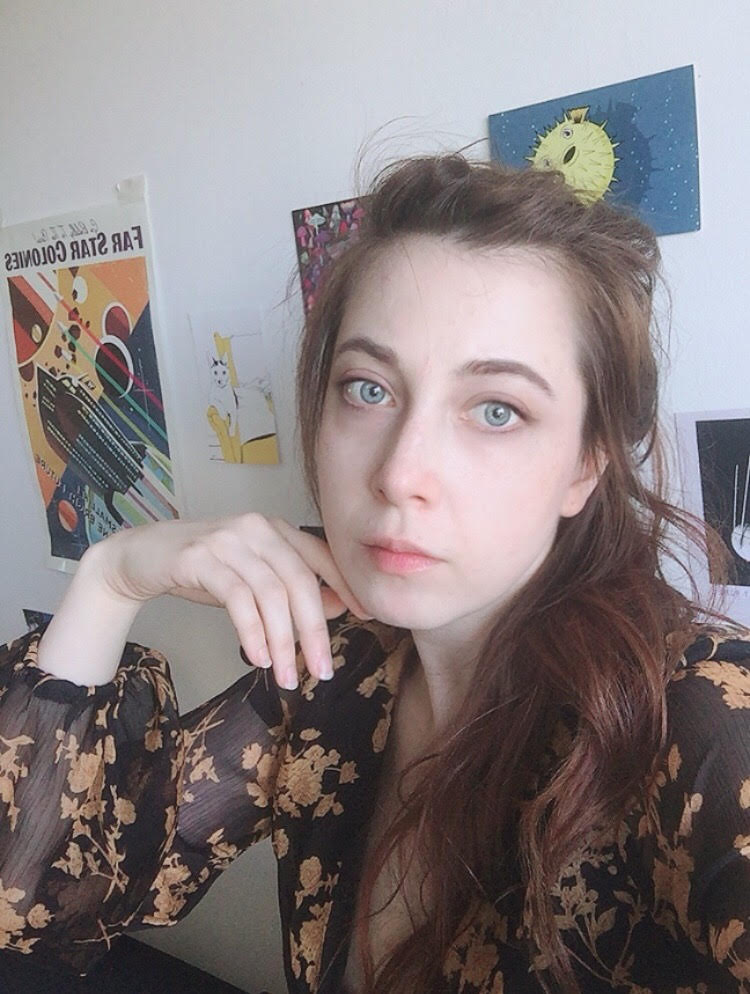Emma Losin

- Role: Game Designer
- Company: Mighty Kingdom
- Location: Adelaide
Some thoughtful answers from Emma Losin!
QRM: Can you tell us a little bit about who you are and what you do in the games industry?
Emma: I began making games in 2014 while studying a Bachelor of Design (Games) at RMIT and a Bachelor of Psychological Sciences at Swinburne University. I developed a strong interest in serious/applied games as well as a love for experimental mechanics and design. I joined the game development industry professionally in March 2019 after completing my studies and moved interstate to begin my work for Mighty Kingdom as a game designer, involved in narrative design, systems design, level design and some analytics involvement.
QRM: What about the games industry excites and inspires you?
Emma: Coming form art school, games became the ultimate medium of expression for me. It was the most elaborate and efficient method of sharing, creating and curating an experience or perspective. It is also such an incredibly constructive medium for health, particularly mental health, whether for expression, education or for treatment.
Watching new and diverse people join our industry and share their incredibly unique, beautiful perspectives and ideas through this medium is one of the most rewarding things I have ever experienced. People who are rarely given a platform to be who they are and express things in such a pure form can suddenly create experiences through the method of game development that are as surreal or as real as their imagination allows, combining realism with escapism in complete freedom of expression.
QRM: What about the games industry frustrates or disappoints you? What are the challenges you’re currently facing in the industry?
Emma: Gate keeping, although simplifying the issues that it encompasses, is the overarching term that I will use to describe what frustrates me most in the game development industry. The industry local to Australia can be quite cliquey and difficult to navigate as a new-comer. When one combines this with the difficulties of joining an industry, the imposter syndrome that we all seem to face plus the usual difficulties that many people from minority groups face, it can be extremely hard to find validity in ourselves and our work or a feeling of ownership and belonging within the industry.
Although I see change within the industry as some companies actively try to create ways for better gender balances as well as encouraging minorities to apply for roles, there still seems to be an imbalance in power, minorities in leadership roles and value of minorities within work spaces. It is difficult to feel as though change is happening if the people that set the standards and rules, the people with the most power, are not people from minority groups.
My recent work involved some research with young people and to my disappointment, participation from minority groups smaller than I could have imagined. When the gap is already so large in high school, how can we expect it to improve suddenly when people go to university? The reality is that it is difficult if not impossible for game development to be isolated from the larger problems that industries and society faces as a whole, which is why I think that although there are some fantastic platforms and pathways for minority groups to join and be a part of the industry, there is not nearly enough. It is not in any way equal to the things that stand in the way. There are so many incredible perspectives and ideas that we don't get to see.

QRM: If you could make one roadblock magically disappear from the games industry, what would you choose and why?
Emma: There are so many complex issues within our society and within our industry but recent movements have brought to light some uncomfortable realities about our industry born from power imbalances. Reputation is unfortunately so important in an industry that is so dependent on networking and job security is rare. This leads to people not having the ability to call out problems in their work spaces or have the support to be able to bring problems to light. No one should be made to feel unsafe or uncomfortable in a work space. It's very easy to be silenced in our industry. People are passionate about their jobs, their work and their projects, if someone makes you uncomfortable, it's often a choice between sacrificing that or your comfort, or worse, your safety. This takes an enormous toll on mental, emotional and even physical health and it is a horrifying experience.
If I could remove one thing, it would be the power imbalances that we have, no one should have to put up with bullying or harassment or anything remotely close and not be able to change or have the tools and support to keep themselves safe in a work space that should already be equipped to keep the people within it safe.
QRM: What message would you give to allies—both individuals and companies—who want to know how to support marginalised people better?
Emma: Give the people within your company that are part of minority groups the authority, power, space and skills to move up through the ranks. Trust them, they know better than anyone else what they need to foster safe and empowering work environments. Give them opportunities, hear what they say and think on it. Enact change and give them the platforms to do so. Set SMART goals and achieve them, it's one thing to say that you want more diversity in the work place or a more inclusive space but there have to be people who are actually taking this on, who's job it is to create this spaces and platforms.
Listen to them, reassure them, listen to talks on how to help people feel heard. People within minority groups often feel as though they are shouting at a brick wall, so be the change. Learn listening skills and provide people within the work space with the education to do the same.
Hold people accountable. Accidents happen and people make mistakes, but people need to be held accountable for their actions when uncomfortable things happen. Most people want to do the right thing, but they need to know when they have not done that. Some people are not used to being held accountable, people with authority need to have the skills to be able to manage that.
Most importantly, own your mistakes. Everyone screws up and change doesn't happen when issues aren't acknowledged. Denying them is not helpful to anyone and invalidates those who have been hurt by them.
QRM: What message would you give to marginalised people who are working in games or would like to work in games?
Emma: You are valid, you can do this. Real people make games and if they can do it, so can you. Your contributions are just as valid as anyone's and your unique background and thought process will give you an edge and a perspective that no one else has.
QRM: If people want to find and support you and your work, how can they do that?
Emma: On Twitter, or Instagram @emmlosin and @emma_losin!

